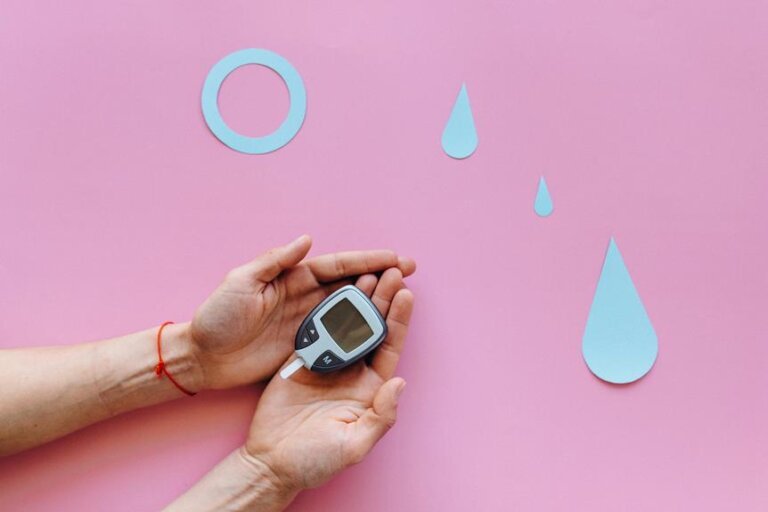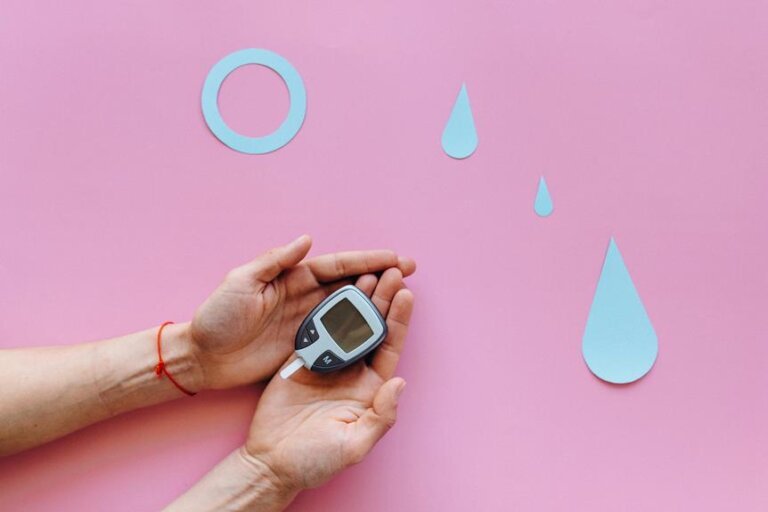The Role of Genetics in Prediabetes: Can Your Genes Increase Your Risk?
Imagine a scenario where two siblings have vastly different lifestyles yet both receive a prediabetes diagnosis. While one sibling leads an active life and maintains a healthy diet, the other struggles to manage their weight and exercises infrequently. What could explain this divergence in health outcomes?
Genetics play a significant role in prediabetes risk, influencing how your body processes sugar and insulin. Understanding how your genes can impact your predisposition to prediabetes is crucial in taking proactive steps towards prevention and early intervention.
Understanding Prediabetes: Definition and Symptoms
If you've ever wondered what prediabetes is and how to recognize its symptoms, you're in the right place. Prediabetes is a condition where your blood sugar levels are higher than normal, but not high enough to be classified as type 2 diabetes. It serves as a warning sign that you're at risk of developing diabetes if preventive measures aren't taken.
One common symptom of prediabetes is frequent urination, as elevated blood sugar levels make your kidneys work harder to filter and absorb the excess sugar. You may also experience increased thirst and unexplained weight changes. Fatigue, blurred vision, and slow-healing wounds are other indicators that could point to prediabetes.
Being aware of these signs is crucial because early detection and lifestyle changes can prevent or delay the progression to type 2 diabetes. If you notice these symptoms, it's essential to consult a healthcare provider for proper evaluation and guidance on managing your prediabetes effectively.
Genetic Influences on Prediabetes Risk
Understanding prediabetes involves recognizing the significant role genetics play in influencing your risk of developing this condition. Your genetic makeup can predispose you to prediabetes by affecting how your body processes sugar, insulin, and fat. Certain genetic variations can make you more susceptible to insulin resistance, a key factor in the development of prediabetes. For example, if your genes influence how efficiently your body produces or uses insulin, you may have a higher risk of developing prediabetes.
Additionally, genetic factors can contribute to your overall risk of developing prediabetes when combined with lifestyle choices such as diet and exercise. While genetics can increase your susceptibility to prediabetes, lifestyle modifications can help mitigate these risks. Understanding your genetic predispositions can empower you to make informed decisions about your health and take proactive steps to prevent or manage prediabetes. By acknowledging the role of genetics in prediabetes risk, you can work towards a healthier future.
Role of Family History in Prediabetes
Exploring how your family history influences prediabetes risk can provide valuable insights into your own susceptibility to this condition. Family history plays a crucial role in determining your prediabetes risk. If you have close relatives like parents or siblings with prediabetes or type 2 diabetes, your risk of developing prediabetes is higher.
Genetics passed down from your family can influence how your body processes sugar, making you more prone to insulin resistance and high blood sugar levels, key factors in prediabetes development.
Having a family history of prediabetes doesn't mean you're destined to develop the condition, but it does highlight the importance of proactive lifestyle choices. Understanding your genetic predisposition can motivate you to adopt healthier habits such as regular exercise, maintaining a balanced diet, and keeping an eye on your weight. These lifestyle changes can help mitigate the impact of genetic factors and reduce your risk of progressing from prediabetes to type 2 diabetes.
Genetic Testing for Prediabetes Risk Assessment
Your family history of prediabetes can prompt you to consider genetic testing as a proactive measure for assessing your risk. Genetic testing analyzes specific genes associated with prediabetes to determine if you have an increased genetic predisposition for the condition. By identifying these genetic markers, healthcare providers can better understand your risk level and tailor personalized prevention strategies.
Genetic testing for prediabetes risk assessment involves a simple procedure, usually a blood test or a cheek swab, to collect a sample for analysis. This sample is then examined in a laboratory to detect any variations in the genes linked to prediabetes. The results can provide valuable insights into your likelihood of developing prediabetes, allowing you to take steps towards prevention or early intervention.
Understanding your genetic predisposition through testing can empower you to make informed decisions about your health. It complements traditional risk assessments based on factors like age, weight, and lifestyle choices, offering a more comprehensive approach to prediabetes prevention. If you have a family history of prediabetes, genetic testing may offer valuable information to guide your healthcare decisions.
Lifestyle Modifications for Genetic Predisposition
Consider implementing specific lifestyle modifications if you have a genetic predisposition to prediabetes.
While genetics can play a role in your risk for developing prediabetes, lifestyle factors also significantly influence its onset. Making positive changes in your daily habits can help mitigate the impact of genetic predisposition.
Start by incorporating regular physical activity into your routine. Aim for at least 150 minutes of moderate exercise per week, such as brisk walking or cycling.
Additionally, focus on maintaining a healthy diet rich in fruits, vegetables, whole grains, and lean proteins while limiting sugary beverages, processed foods, and excessive fats.
Monitoring your weight and aiming for a healthy BMI can also reduce your risk. Managing stress levels through techniques like mindfulness, meditation, or yoga can further support your overall health.
Frequently Asked Questions
Are There Different Types of Genetic Factors That Can Contribute to Prediabetes Risk, or Is It Primarily Determined by One Specific Gene?
When it comes to prediabetes risk, various genetic factors can play a role rather than just one specific gene. Your susceptibility to prediabetes is influenced by a combination of different genetic variables.
How Do Environmental Factors Interact With Genetics to Influence Prediabetes Risk?
Environmental factors, combined with your genetics, play a crucial role in influencing prediabetes risk. Factors like diet, exercise, and stress can interact with your genetic predisposition, affecting your overall susceptibility to developing prediabetes.
Can Genetic Testing Accurately Predict the Likelihood of Developing Prediabetes, or Are There Limitations to Its Reliability?
Genetic testing can provide insights into prediabetes risk, but its accuracy has limitations. Factors beyond genetics, like lifestyle, also play a significant role. Consult healthcare professionals for a comprehensive approach to understanding and managing your risk.
Are There Specific Lifestyle Interventions That Are More Effective for Individuals With a Genetic Predisposition to Prediabetes?
For those with a genetic predisposition to prediabetes, focusing on regular exercise, balanced nutrition, and stress management can be highly effective in reducing the risk. Small lifestyle changes can make a big difference.
How Do Epigenetic Changes Play a Role in Increasing the Risk of Developing Prediabetes, and Can They Be Reversed Through Lifestyle Modifications?
Epigenetic changes can increase prediabetes risk. Lifestyle modifications, like exercise and diet, may reverse them. Understand your body's signals, prioritize health, and consult professionals for personalized guidance. You have the power to make positive changes.
Conclusion
So, can your genes increase your risk of prediabetes?
The answer is yes. Studies have shown that individuals with a family history of diabetes are at a higher risk of developing prediabetes.
In fact, research has found that having a parent with diabetes can increase your risk by up to 26%.
Remember, genetics play a significant role in prediabetes risk, but lifestyle changes can help mitigate that risk.
Stay informed and take control of your health!





